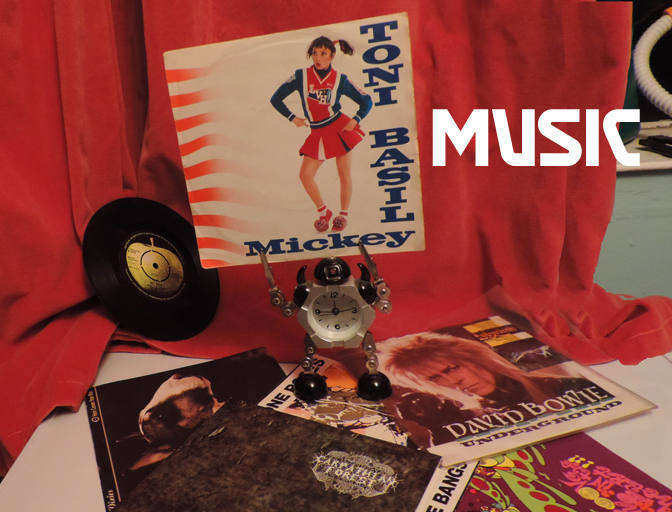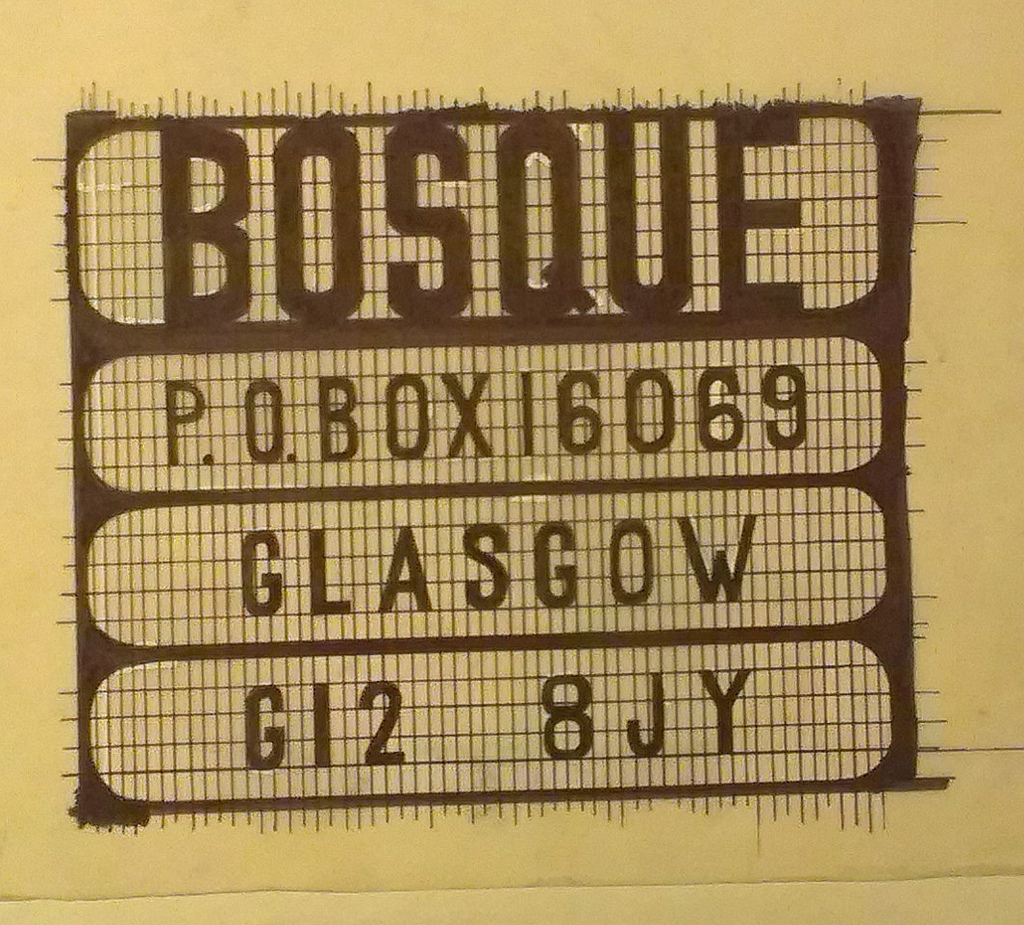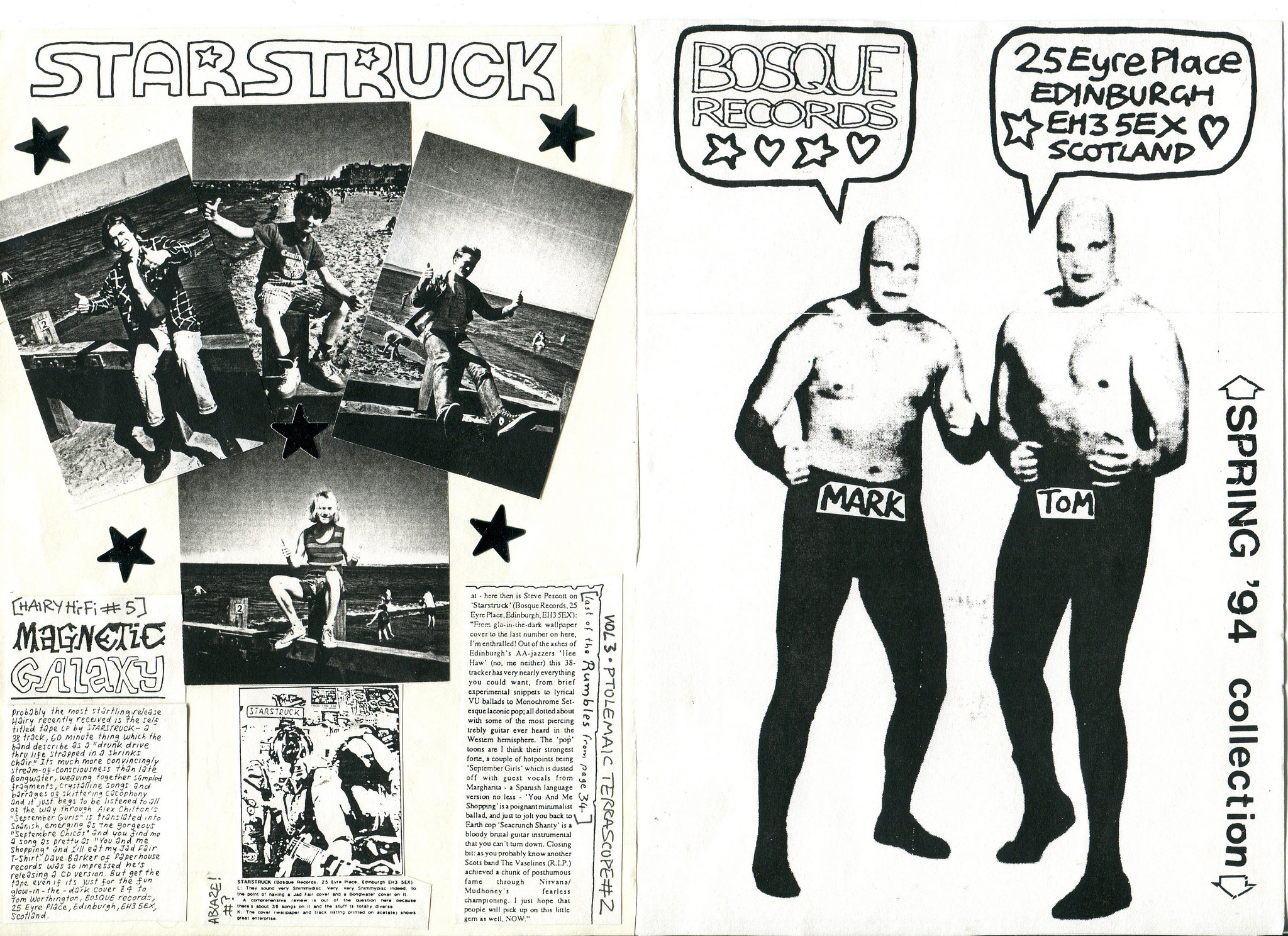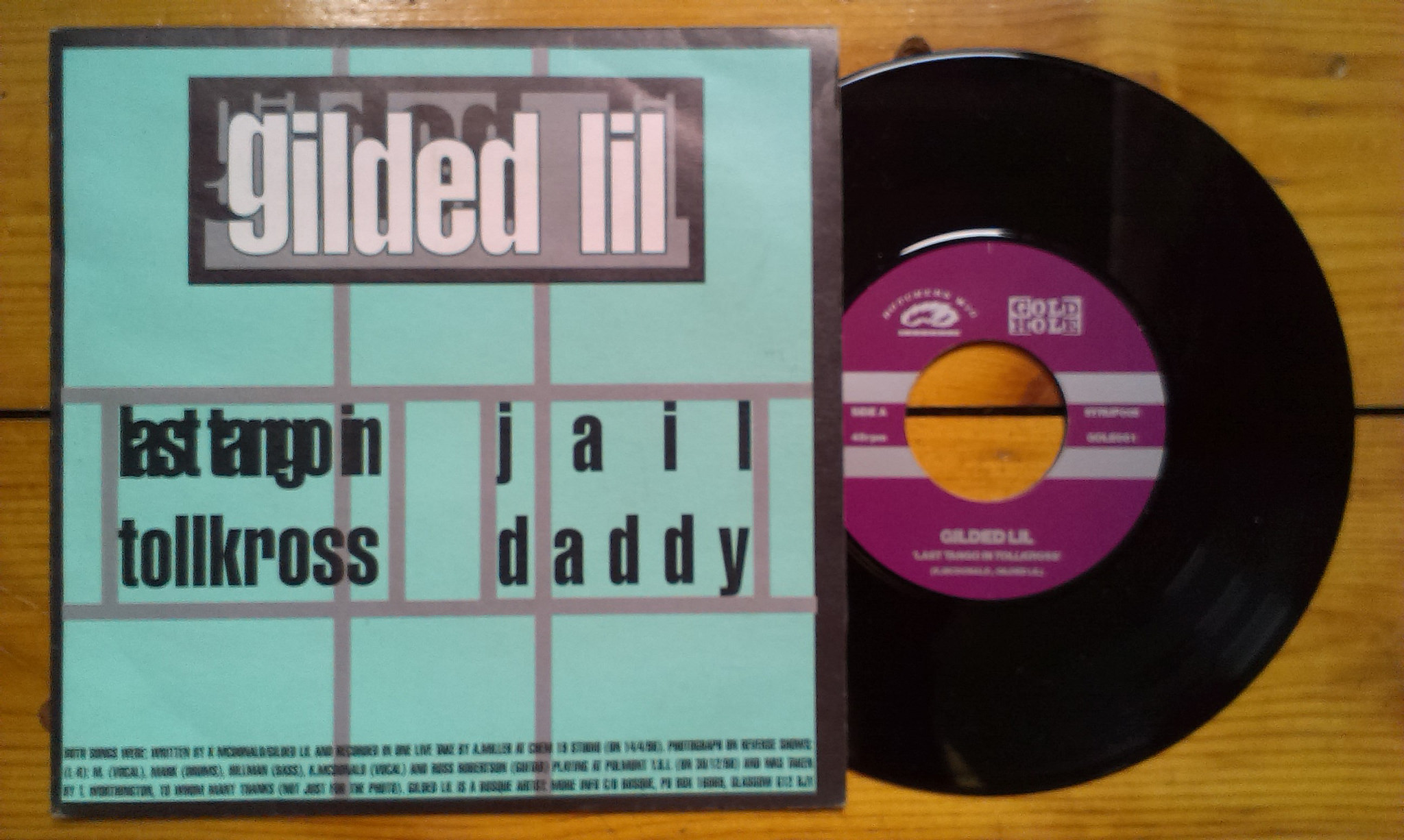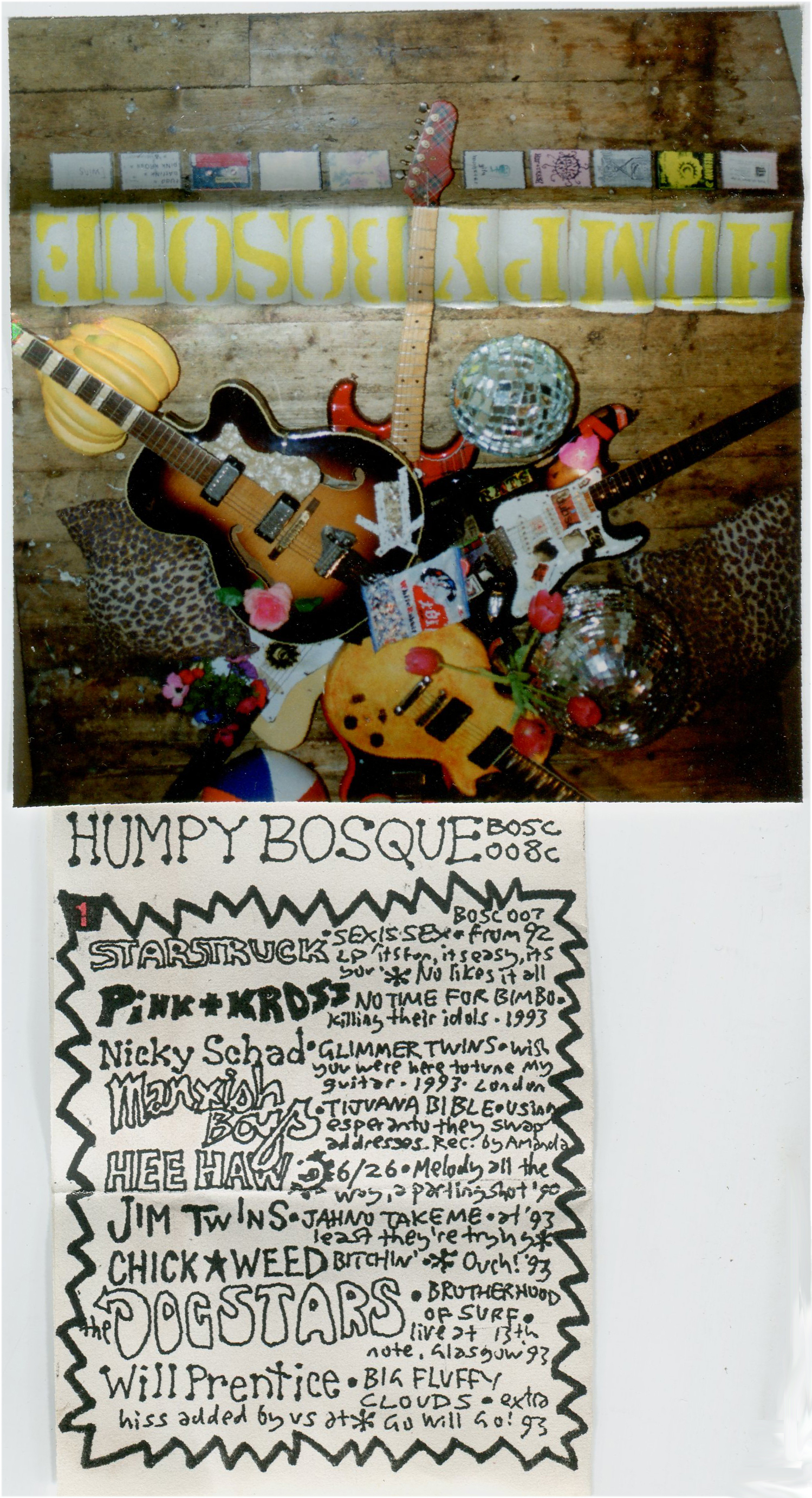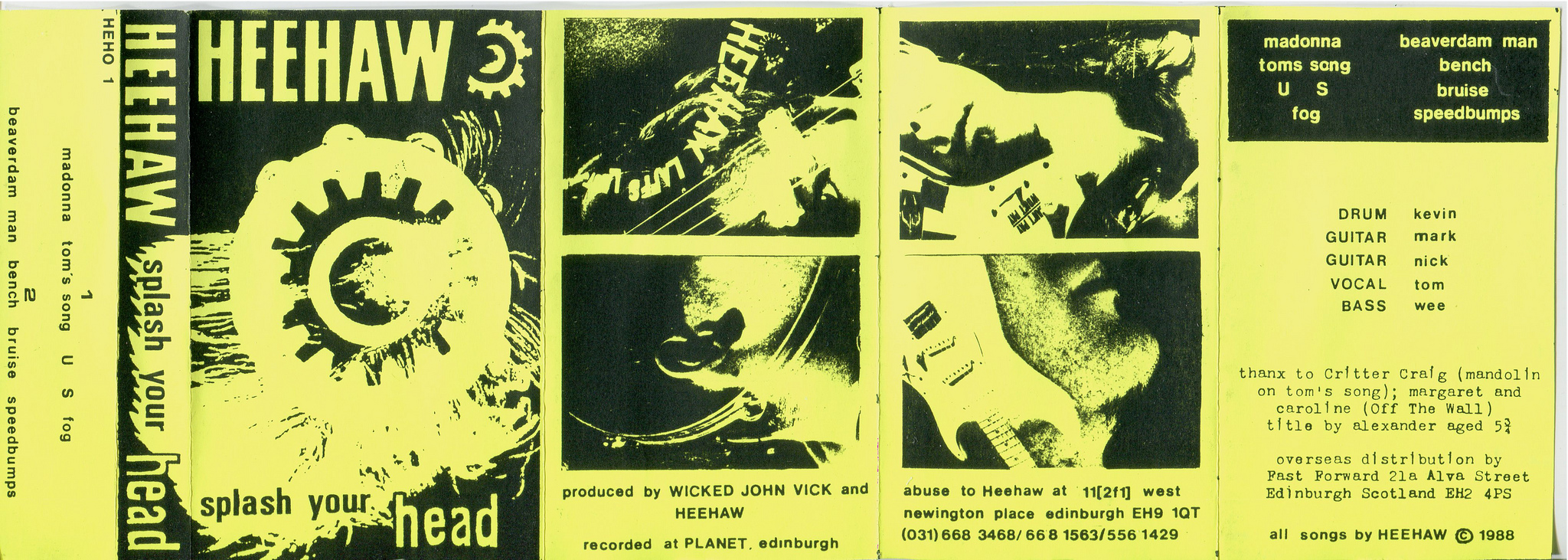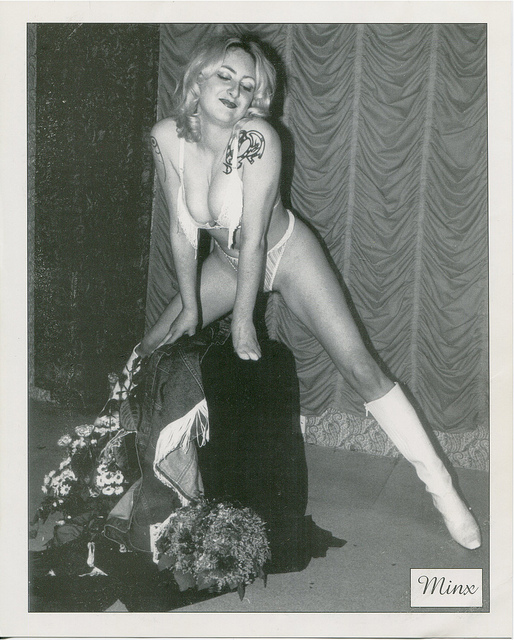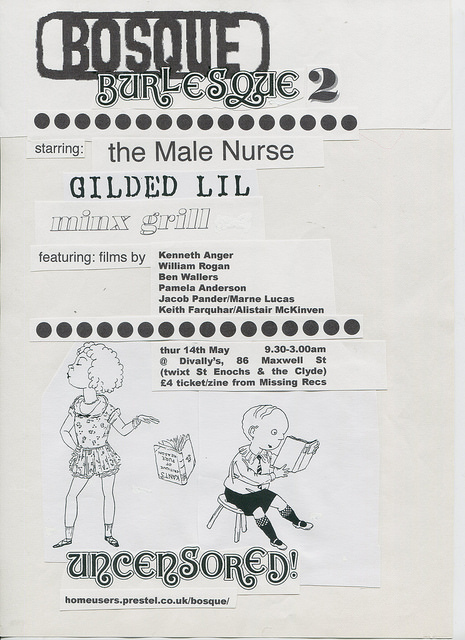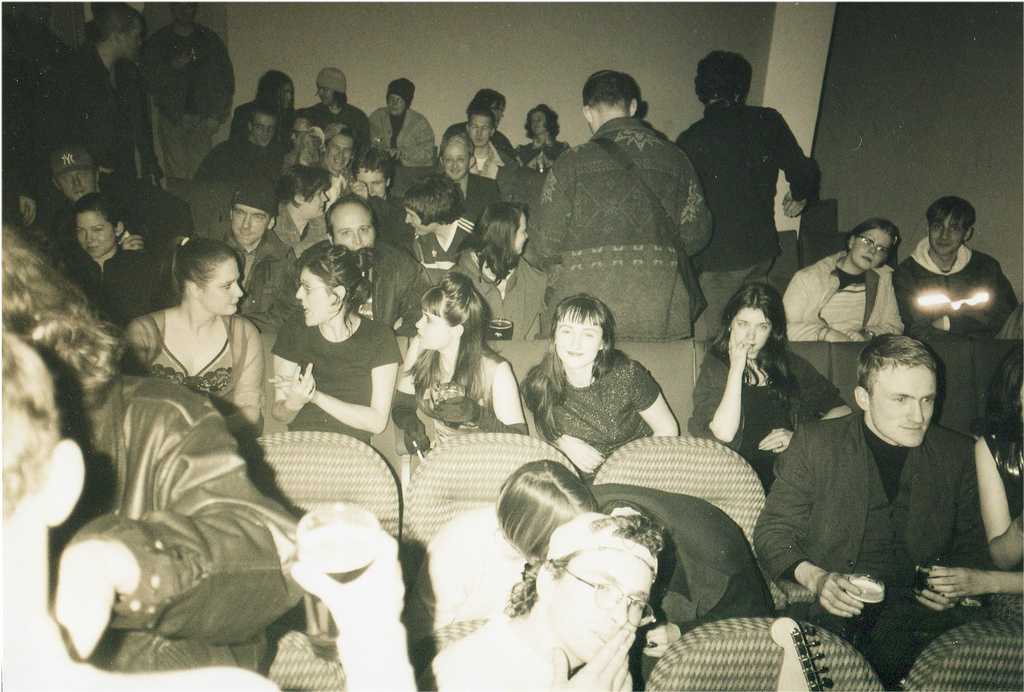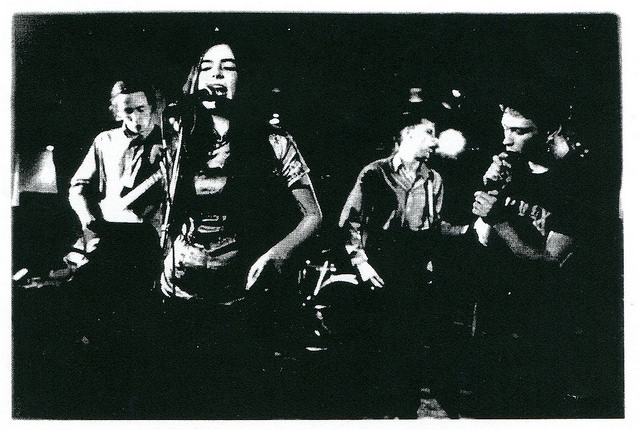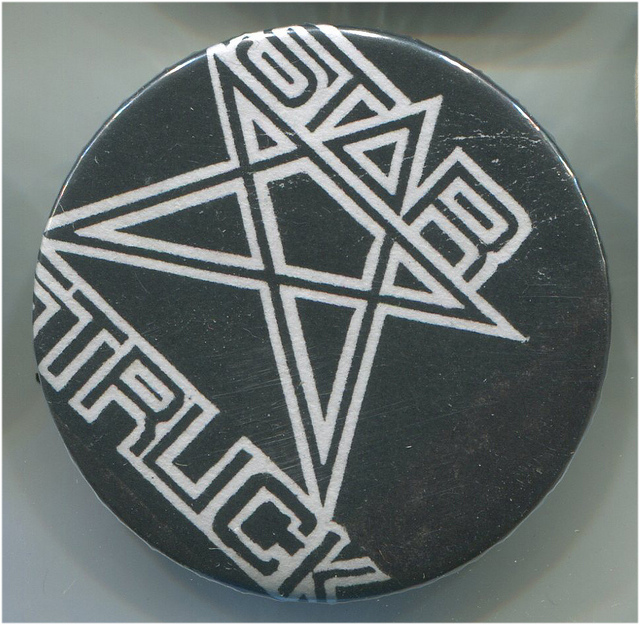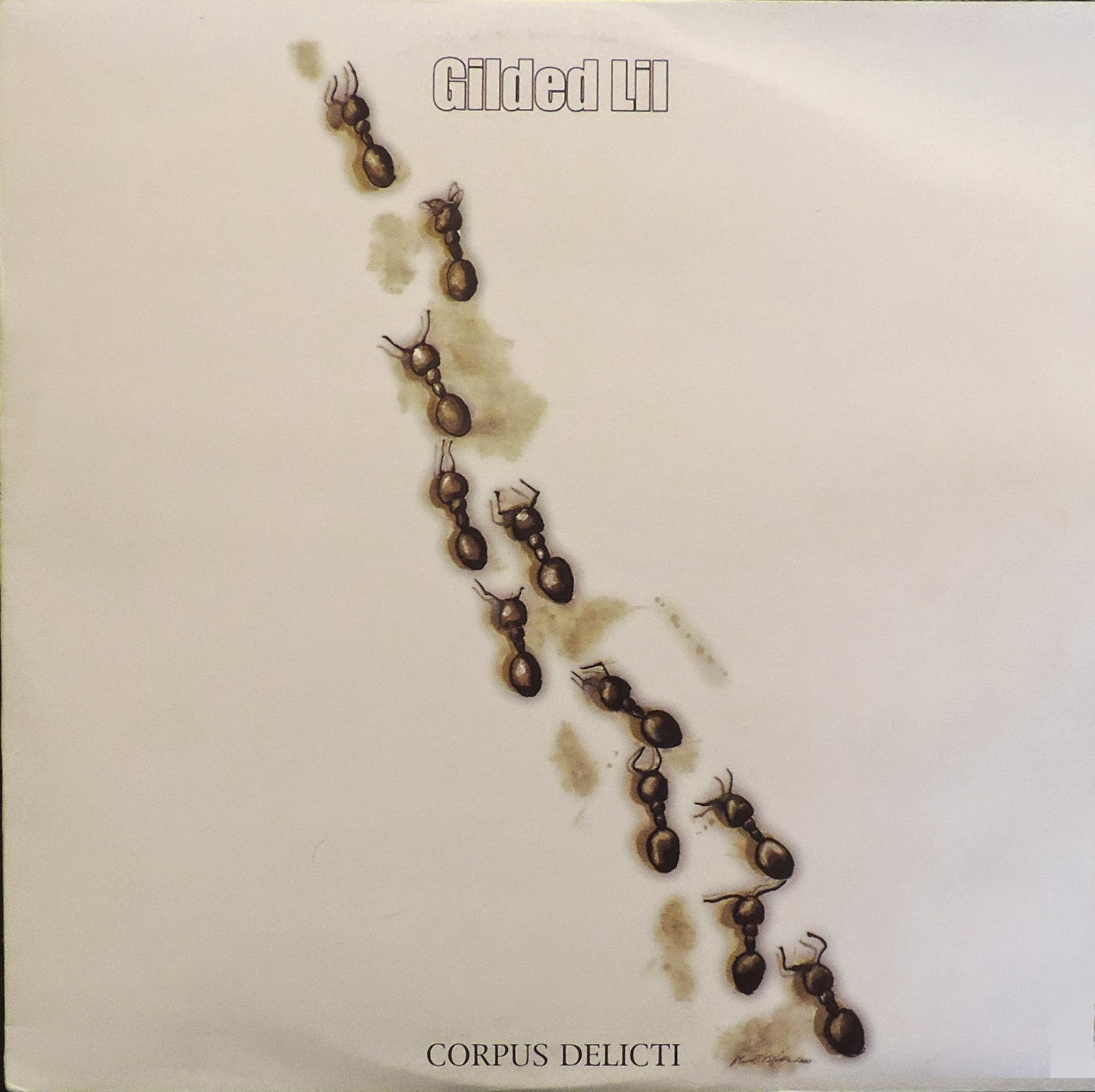Romantic intro…
Records (even really bad ones) are mostly just what the word suggests: a unique record of a specific performance, made on a particular day or days, by people in a particular room or rooms, who were in whatever mood they happened to be in at the time.
Record labels are, at their best, a time capsule of an era (or, if they go on long enough, time capsules of eras; see for example the lavish Rise and Fall of Paramount Records box sets), bringing together and preserving these voices and sounds and making them accessible for as long as the technology exists to play them.
Naturally, the more focussed or niche (or just small) a label is, the stronger the time capsule quality is; which brings us to Bosque Records. Although the big names of the 90s Scottish indie scene (Primal Scream, Belle & Sebastian, Teenage Fanclub, Travis, Shamen etc etc etc etc) are well remembered by posterity (or else are actually still around), they were simply the most visible/commercial/successful elements of an extremely vibrant and wide-ranging scene, which had its roots in the punk era and evolved throughout the subsequent decades in a variety of unpredictable and sometimes whimsical ways.
At the less commercial end of the spectrum was Tom Worthington’s Bosque Records, initially based in Edinburgh (rarely noted for its music scene) and then Glasgow (always noted for its music scene). In the period 1988-2001 Bosque released a handful (twenty-something) of distinctive, often powerful releases by artists as diverse and idiosyncratic as Dominic Waxing Lyrical, Gilded Lil, Starstruck and Trout. A small output perhaps; but it fulfils the ideal that (presumably) all labels start out with; you can pick up a Bosque release, be it punky, experimental, bluesy, dancey, with the confidence that you will hear something different, something interesting, something unique. And that is a real achievement.
In some ways, Bosque was documenting the end of an era; changes in the music industry, along with (and partially caused by) the birth/growth of the internet and the (temporary, as it turned out) death of vinyl records meant that the indie scene of the early 21st century would be less local and often less experimental, thanks to the appearance in the mid-90s of ‘indie’ as a term denoting a specific style/genre of (mainly guitar-based) music.
The original meaning of indie was in fact exemplified by small labels like Bosque; truly independent, devoted to whatever music their owners wanted to release, regardless of style and fashion or commercial potential. Indie releases from the 80s and 90s have their own special charm; like the music itself, the hand-drawn logos, the artwork and design have a resolutely non-corporate appeal, an expression of freedom and the non-elitist sense that art isn’t something precious or pompous, and that it has everything to do with your life.
Tom was good enough to share his reminiscences (and pictures; please see his Flickr albums for proper photo credits) with us;
When and why did you decide to start a label?
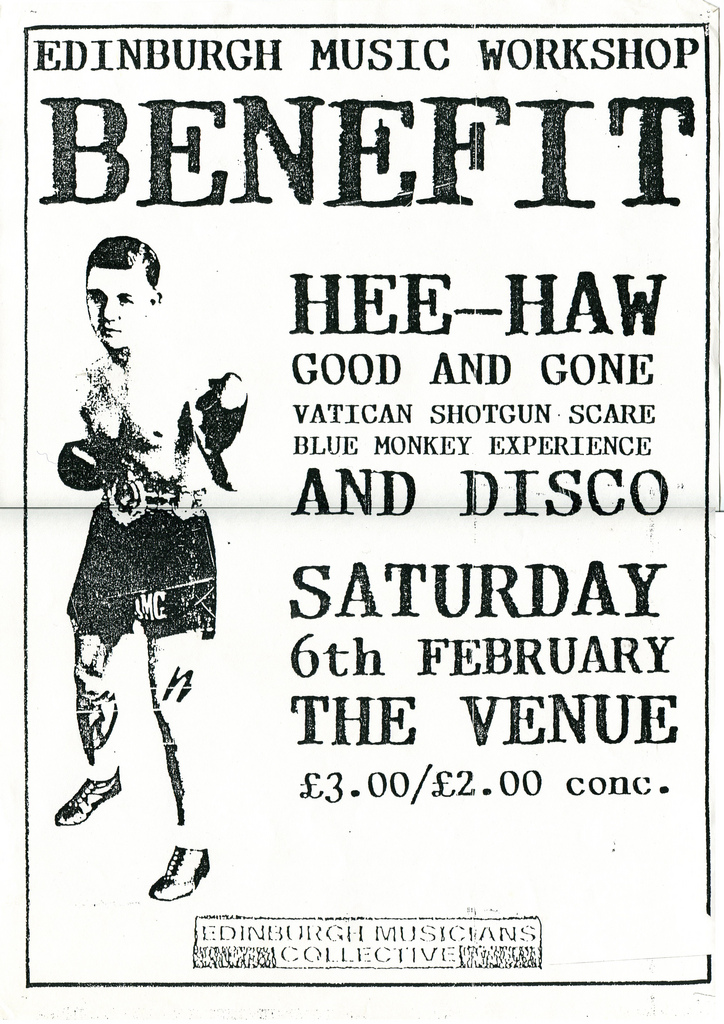 “I was in a band in Edinburgh, named Hee Haw and we had recordings that we wanted to release. In 1988 we first put out an 8 track cassette ‘Splash your head’ that sold quite a few (200?) so logically we thought that we would next do a vinyl record which was the 5 track 12” ‘WrigglEP’ in 1989 (bosc 006). Of course we should have done a 7” or 2 x 7”s but we had ‘label support’ from Fast Forward who persuaded us that the 7” was wrong for us and the ‘market’. And we were impressionable so that is what we did. It was alright, Peel played it and we sold a few, gigging as much as we could.”
“I was in a band in Edinburgh, named Hee Haw and we had recordings that we wanted to release. In 1988 we first put out an 8 track cassette ‘Splash your head’ that sold quite a few (200?) so logically we thought that we would next do a vinyl record which was the 5 track 12” ‘WrigglEP’ in 1989 (bosc 006). Of course we should have done a 7” or 2 x 7”s but we had ‘label support’ from Fast Forward who persuaded us that the 7” was wrong for us and the ‘market’. And we were impressionable so that is what we did. It was alright, Peel played it and we sold a few, gigging as much as we could.”
Where did the name Bosque come from?
“Bosque (my spelling) is/was a word in common parlance in Forres, Moray, the town where I grew up. It means, roughly, excellent or sound, as in mighty. There was a Bosque cassette compilation in 1994 that featured The Manxish Boys, Pink Kross, Starstruck, Gila Monster, Policecat etc. This was called ‘Humpy Bosque’ (bosc008c) which suggests that it is an incredibly wonderful thing – which it kind of was. The name was of course awkward and annoying, always requiring to be spelled out to people, B O S Q U E.”
What were your biggest influences when you started the label?
“Punk rock. Vanity self publishing. Desire to document. Validation. Independence.”
What is your favourite record label, if you have such a thing?
“I shall plump for Shimmy Disc. But also early Flying Nun. Ankst Records too – I so admired their thing and was always actively seeking a decent band that communicated in Gaelic. But to my knowledge no such band has ever existed.”
Was there a specific guiding principle/vision behind Bosque records?
“Initially no, not really, it was a collective necessity and a shared responsibility. But after the Hee Haw releases it became me and Mark Gibbons, and that’s where it got freaky, and free. We were so in love with music, our own and that being made all around us. We were passionately involved, music and art and poetry was all that mattered. We knew that we had to take complete control and somehow, that is what we did. After Mark & I moved through to Glasgow in 1995 he started to have more fun. He joined and recorded several other bands and became less and less involved in Bosque. It was mostly me then, in a cheap white suit, a bit stoned.”
You were involved in the Bosque Burlesque events as well as the records, was there a spirit of camaraderie between the label/bands/fans?
“Well yes there was. I mean not always, because we were purposely juxtaposing things and 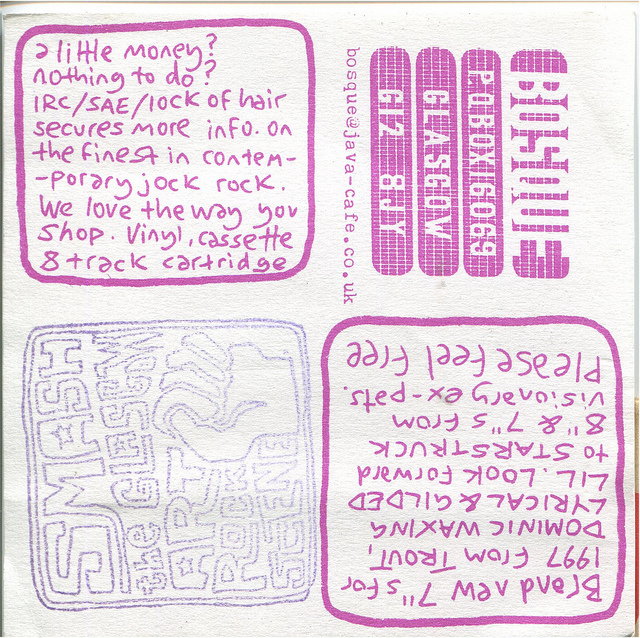 deliberately trying to integrate many strands of the cultures that we were interested in. The Bosque Burlesque shows were a good example of this approach. Bosque was always about widening things out, finding connections and introducing jarring elements that tickled our fancy. We were trying to be free. And straddle the medias. There was such a great scene in Glasgow in the mid 90’s. We hardly cared about the rest of the world, we had all the excitement and all the tunes right here in our city. It was, essentially, a very wonderful time. The grotty basements and the parks and the cheap bars were full of individuals experimenting with their lives, throwing all that they had against the wall to see what would stick (a Will Prentice observation).
deliberately trying to integrate many strands of the cultures that we were interested in. The Bosque Burlesque shows were a good example of this approach. Bosque was always about widening things out, finding connections and introducing jarring elements that tickled our fancy. We were trying to be free. And straddle the medias. There was such a great scene in Glasgow in the mid 90’s. We hardly cared about the rest of the world, we had all the excitement and all the tunes right here in our city. It was, essentially, a very wonderful time. The grotty basements and the parks and the cheap bars were full of individuals experimenting with their lives, throwing all that they had against the wall to see what would stick (a Will Prentice observation).
< Minx Grill
Seemed like everyone made music, wrote zines, put on gigs, we were just very, very present. Really I was too involved to ever be successful at the label game. I was a little bit older than most of us and I found myself in some kind of welfare/surrogate uncle role for lots of lovely, amazing, needy people. But at the same time I was trying to be a responsible safe bet to London promo/label types, fuck that wasn’t very comfy for me. But someone had to do it…
But aye, looking at the photos I took of the Bosque Burlesque shows, just about everyone in the audience was in bands themselves – and lots of them still are! A lot of fun, so many stories…”
What are your favourite Bosque releases and why?
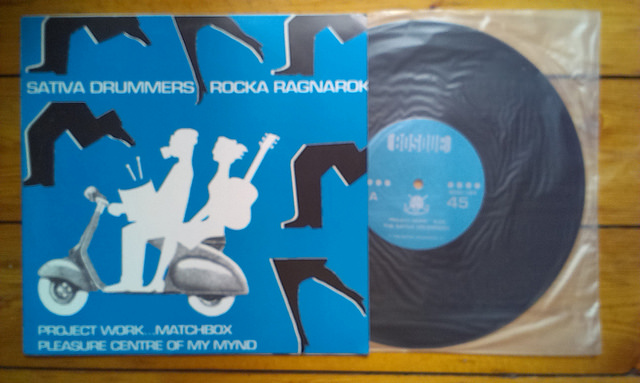 “I suppose that the Sativa Drummers / Rockaragnarok split 10” (bosc024) summed up the ethos pretty well – and it is a great record. Sativa Drummers were a collective of drilled, politically motivated ravers with drums who would turn up from over the horizon at every demo or radical event in the east of Scotland. Mark Deas recorded this record and marshalled a massing barrage of drums, with minimal tape loops that conjured up an Albini-esque finale. Rockaragnarok on the other side were associated with and even shared members and lives with the Sativa Drummers but played an entirely different, timeless plas-rock psyche that amazes me still. But I am proud of all that we released. I just wish there had been more.”
“I suppose that the Sativa Drummers / Rockaragnarok split 10” (bosc024) summed up the ethos pretty well – and it is a great record. Sativa Drummers were a collective of drilled, politically motivated ravers with drums who would turn up from over the horizon at every demo or radical event in the east of Scotland. Mark Deas recorded this record and marshalled a massing barrage of drums, with minimal tape loops that conjured up an Albini-esque finale. Rockaragnarok on the other side were associated with and even shared members and lives with the Sativa Drummers but played an entirely different, timeless plas-rock psyche that amazes me still. But I am proud of all that we released. I just wish there had been more.”
Are there any Bosque artists you feel deserved wider exposure?
“Pretty much all of them. Seriously. I honestly believe that when they were on form, Gilded Lil were one of the greatest rock & roll bands of all time – and Trout were punk rock incarnate. Starstruck were pretty incredible at times and I am extremely proud of it, even if I say so myself. And what to say of Dominic Waxing Lyrical? I hardly know where to start, but the good thing is that he has not stopped and that is perhaps in some small way, due to our documenting and validating his music and stance on life back then.”
<Gilded Lil live c.1998
Were there any bands around then you wish you had signed but didn’t?
“Lots, I had so many ideas, so much enthusiasm, but so little money. There were so many good ideas for records, it’s a wee bit painful to think about them. I was useless with the business and admin but was convinced all through doing the label that someone, some big label or distro or individual would support and bankroll me through a load of releases. I had the bands ready, and the ideas and energy. It didn’t happen though.
I very nearly got to make a record with Mr. McFall’s Chamber (trumped by Robert Fripp).
I would have loved to have made a record with the Country Teasers.
There was to be a Starstruck picture disc 7” on the subject of red hair that just never happened dammit.”
It felt like the UK indie scene really changed around the time of Oasis, when suddenly commercial appeal/mainstream success started to be a goal, rather than something to be suspicious of, was that how it felt from the inside?
“I don’t think I cared that much. That stuff was all so crass and bland to me. Starstruck actually had a run in with Creation records around this time. Dave from Fire/Paperhouse Recs wanted to re-release the 1991 Starstruck cassette album ‘It’s fun, it’s easy. It’s you’ (bosc005) on CD on his Seminal Twang label – which was a fantastic idea, we were thrilled. And he was keen, he got us to do some recordings for various compilations, flattered us, gave me beer money, put us on the guestlists and generally held out the prospect of looking after the band, he was just really enthusiastic. But then he got head hunted to Creation where it all went wonky. Although we went with him there (without having signed anything, duh) his priorities suddenly seemed to change to immediacy and cashing in on what had become indie as a style not independence as a state of mind. We were palmed off, were bottom of the pile and basically forgotten about, which was deeply frustrating and resulted in Saskia and I going into the Creation offices at Creation and removing the Starstruck artwork and tapes. Disappointing, extremely. But we never were 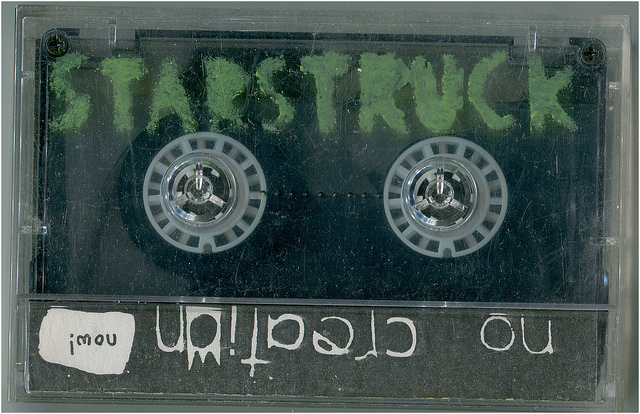 going to fit into that scene. Maybe we never were going to fit into any scene… Thus the subtitle to the Starstruck ‘Moi et Beatrice Dalle’ cassingle (bosc009) in 1993 was ‘No Creation Now!’. It also includes our classy version of the Beach Boys ‘Surfers rule’ which we had recorded for a Seminal Twang compilation with Murdo from The Cateran and Margarita from The Fizzbombs/Rote Kapelle.”
going to fit into that scene. Maybe we never were going to fit into any scene… Thus the subtitle to the Starstruck ‘Moi et Beatrice Dalle’ cassingle (bosc009) in 1993 was ‘No Creation Now!’. It also includes our classy version of the Beach Boys ‘Surfers rule’ which we had recorded for a Seminal Twang compilation with Murdo from The Cateran and Margarita from The Fizzbombs/Rote Kapelle.”
How far (if at all) do you think the label was shaped by being based in Glasgow? It definitely felt like Glasgow had a scene in a way that Edinburgh didn’t…
“Well Bosque moved from Edinburgh to Glasgow in 1995. Couldn’t be bothered with Edinburgh any more. Glasgow was absolutely the place to be. I was coming through twice a week anyway. Mark & I had both split up with girlfriends in the east and besides we had added a rhythm section to the Starstruck sound and they lived in Glasgow. So we loaded a van and hit the M8. 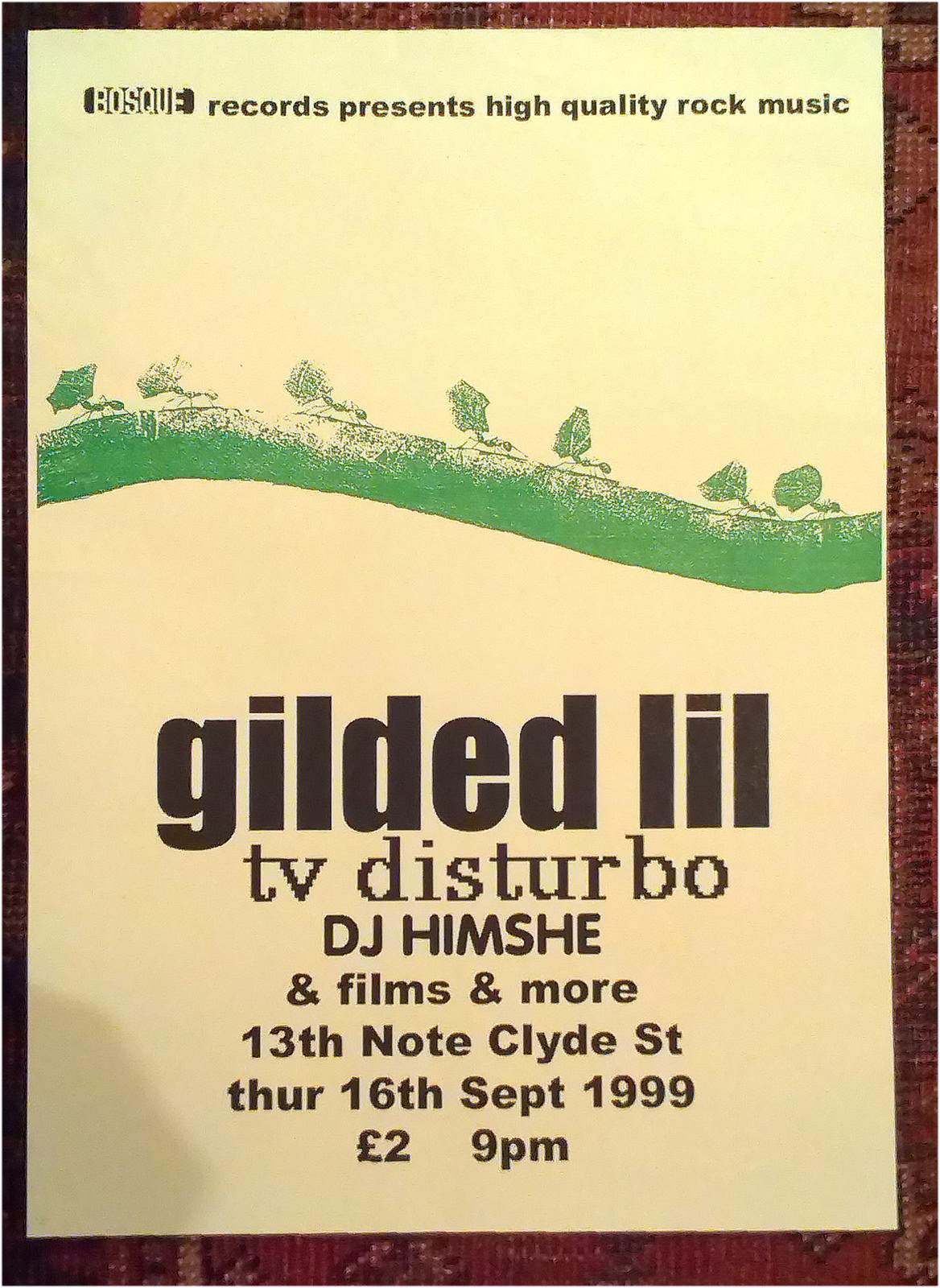
Mid 90’s Glasgow was grotty but kind of perfect. Bands would form, flicker and break-up in a day. 15 people would huddle in a bedsit to watch a VHS of a Cassavetes film. Folks would meet at the photocopy shop, start a new zine. We all forgot to eat. The 13th Note and Sleazy’s could be so perfect of an evening and sincerely we did not give a fig for the rest of the world, we had our own. We made friends for life. Very interesting when Richard Hell or Kim Fowley or The Make Up came to town – Glasgow gave more than it got. Amazing.
Of course I remained closely involved with my pals in bands in Edinburgh and felt obliged to introduce and promote their thing, first to Glasgow and then anywhere else that would have them…. This Edinburgh connection seemed like a trump card for Bosque, it felt important. But when I’m in Edinburgh I always want to get back to Glasgow to see what’s going on.
So yes, Bosque was shaped by Glasgow, but perhaps in hindsight it would have benefitted from a slight remove. But that’s not the story.”
Was running the label a financial struggle? Was it ever a full-time occupation?
 “Well yes it was a struggle, eventually a bit of a disaster. It was so hard to even make ends meet and I never made any money to speak of, it all went back into the bands, their records, tours etc. But for a very long time I was so motivated and convinced of a beautiful outcome. The satisfaction was from being with fantastic, hilarious, talented people and making music and records. And between me and all the other labels, we did document an important and exciting time in Scottish culture. We did.
“Well yes it was a struggle, eventually a bit of a disaster. It was so hard to even make ends meet and I never made any money to speak of, it all went back into the bands, their records, tours etc. But for a very long time I was so motivated and convinced of a beautiful outcome. The satisfaction was from being with fantastic, hilarious, talented people and making music and records. And between me and all the other labels, we did document an important and exciting time in Scottish culture. We did.
But yes I had to work through it all to pay my own way. And I sold furniture, records, all kinds of stuff, just to complete recordings and make the records that I believed in and was committed too. My enthusiasm knew no bounds.”
Was distribution ever a problem?
“Distribution was always a problem. We existed in a window of time where provincial rock & roll had little currency outside of our scene and the internet was but a baby. Post Fast Forward (1990 or so) there was no Scottish distro network to speak of so we were trying to deal with the London distributors and certainly for Bosque that was generally a highly dysfunctional & unsatisfactory relationship. These firms always seemed to be at it with us, but I freely admit that I was pretty dim about it all and not good at the language of bullshit or of playing hard-ball, both of which seemed to be required skills in manouvering within the London music industry. So probably most of our sales were at gigs, direct to shops and through the mail. But can I say that Paul Kearney is a lovely man!
As far as the web went we were actually really on it and did even attempt to live-stream a gig in 1995 as Mark & I and Saskia & Clare from Sally Skull were involved in Scotland’s first internet café then – but it all went tits up, which was another reason for escaping Edinburgh. We subsequently had a website and tried to work that but in the absence of streaming/downloads/secure server it was never a realistic way of running the label.
Sally Skull live, c.mid 1990s
 My complaints about distro should not obscure the wonders of the myriad bedroom distros & the international pop underground which supplied the Bosque P.O. Box with cute letters containing fivers and ten dollar notes and IRCs and cheques in return for our vinyl – which meant that there was always a wee bit of money around for the essentials of life.”
My complaints about distro should not obscure the wonders of the myriad bedroom distros & the international pop underground which supplied the Bosque P.O. Box with cute letters containing fivers and ten dollar notes and IRCs and cheques in return for our vinyl – which meant that there was always a wee bit of money around for the essentials of life.”
Why/when did Bosque close?
“It all got very messy in late 1998/1999. Drugs and depression, death and despair. I had promised certain things basically the Gilded Lil album (bosc028), and I just had to hold on until that was released, which wasn’t until 2001. But I so very badly wanted/needed to get out, quit, take a back seat and get some rigour and honesty back in my life. It was a sad end to an extraordinary time. So very much energy had been put into the venture and there was not so very much coming back at me.”
What do you think of the Scottish/UK indie scene nowadays, do you still follow it?
“A bit. I go out and see bands in Glasgow sometimes. Lots, maybe even most of my friends make music, some of them have never stopped, I guess that they cannot and indeed why should they. There is still a lot of fantastic music being made in this country, particularly of course here in Glasgow. Great bands, labels, venues – loads of crossover into visual art, film and the written word. Exactly as it should be and, I am glad to say, it just don’t stop.”
Looking back at Bosque, do you have any regrets? Would you do it all again and if so what would you do differently?
“No regrets, fuck that. Never again. Onwards.”
Heartfelt thanks to Tom for taking the time to answer my questions! See many more great photos from his archives here
See the Bosque discography here

